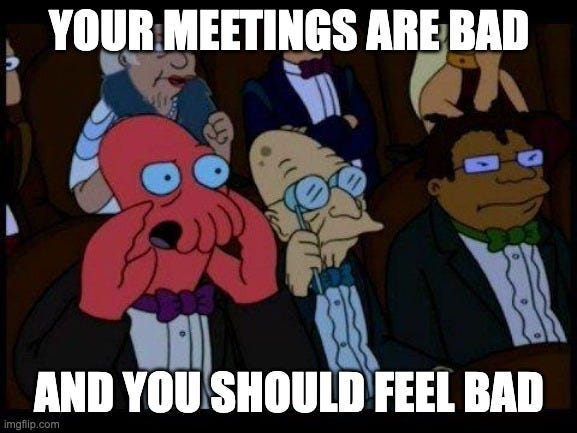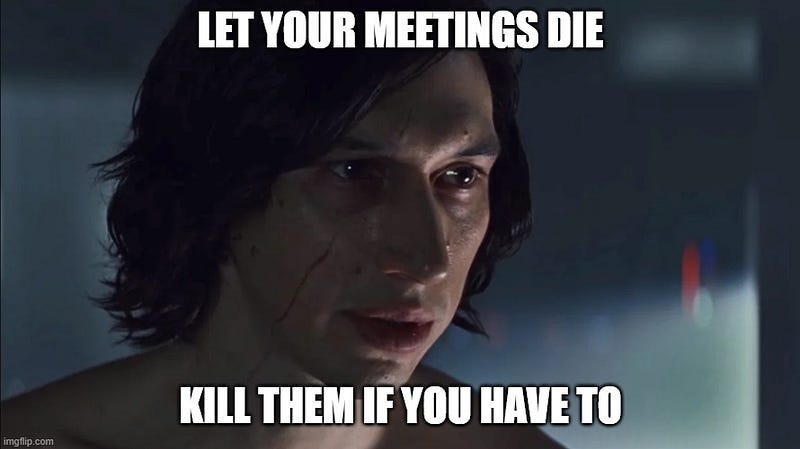Your Meetings Are Bad And You Should Feel Bad: A Series
It’s all fixable, but it’s time you took a serious look at your meeting culture.
It’s all fixable, but it’s time you took a serious look at your meeting culture.
Think about the last meeting you organized and ask yourself these questions.
Did it seem like attendees were engaged?
Were attendees prepared to work on whatever you were discussing?
Was a decision made by the end of the meeting?
Be honest, could it have been an email?
If you can’t answer these questions, the problem may be worse than you think.
The good news? It’s alright if the problem is bad already. This series will help you start to evaluate what meetings are needed, ways to organize and run them effectively, and how to make each and every meeting together productive.
What This Series Will Cover
It may seem a bit overwhelming initially, but there are a lot of factors to consider when it comes to meetings and meeting culture. Over the next month I’ll be posting more on the following topics:
Types of Meetings
Meeting Participant Considerations
What’s Needed For Effective Meetings
Performing A Calendar Audit
Strategies for Getting Out of Meetings
Normalizing Information Consumption
Why Do People Hate My Meetings?
Before we get too deep into how to fix your meetings, it’s important to understand why individuals may be unhappy with your meetings as they are. Some common complaints:
“This could have been an email”
“The meeting organizer read the slide deck to me”
“I wasn’t called on”
“There wasn’t an agenda”
“I broke my focus time for this?!”
“No one else was paying attention”
“We didn’t really talk about anything”
“The meeting never ends on time”
If you’re unsure about how your meetings are going or how folks think about them, take a poll! Especially if you’re a leader within the business, give the chance for anonymous feedback about what folks are finding helpful and unhelpful.
Does Everyone Hate Meetings?
Peter Drucker may be the biggest meeting hater of them all. He’s quoted as saying “Meetings are by definition a concession to a deficient
organization. For one either meets or works. One cannot do both at the same time.”
This all seems rather negative and like I’m asking you to abolish all of your meetings, but that’s not the case. From this series I want to make sure you and everyone you work with become more thoughtful about how you meet, when you meet, and why you meet.
More to come in the following weeks!




